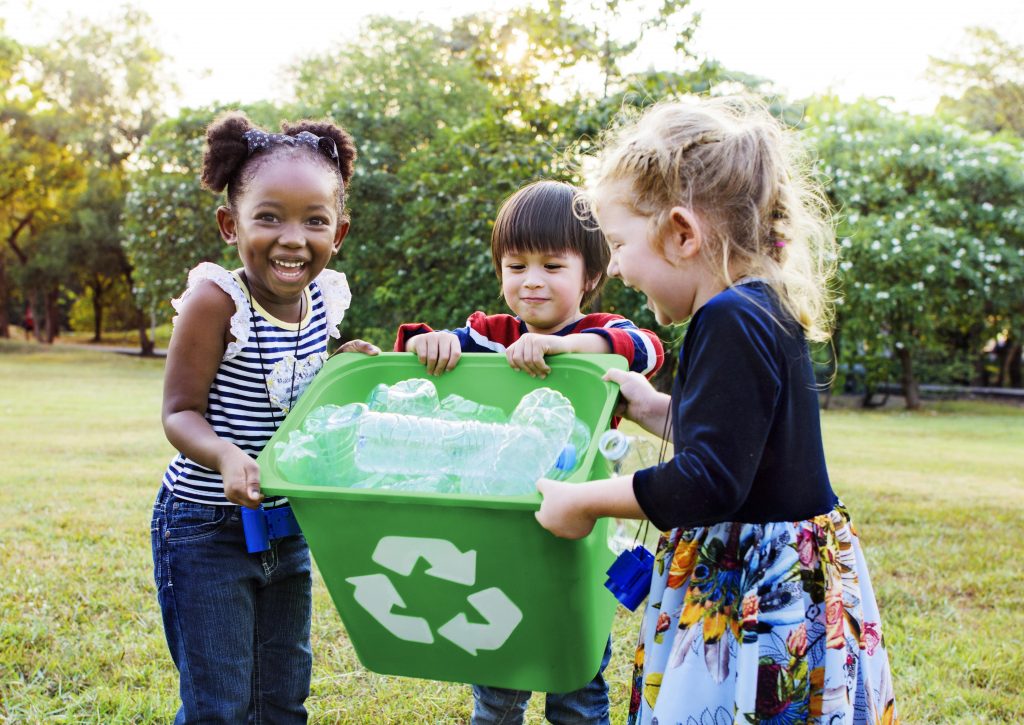Regulations and targets set by brand-owners have been contributing to a growing demand for recycled plastics globally, particularly for use in food and beverage packaging. However, the supply of high-quality food-grade recycled polymers remains limited. Challenges include low volume and quality of post-consumer waste, costly sorting and washing technologies to eliminate contaminants, and the need for approvals from governmental agencies.
Government Regulations
Various agencies control and supervise materials that come in contact with food, including the Food and Drug Administration (FDA) in the U.S. and the European Food Safety Authority (EFSA) overseas.
Companies that wish to use recycled plastic for a food-contact application in the U.S. must submit a description of the waste source and recycling process, results of tests that prove the process removes potential contaminants, and a proposal of use conditions in the final application, such as temperature, type of food, and duration of the contact. Full guidance is published on the FDA’s website, www.fda.gov.
Once submitted, the FDA then evaluates each proposal case by case and provides companies with a Letter of No Objection (LNO), which is a recommendation as to whether the recycling process is likely to produce plastic that is appropriate for food-contact purposes.
The EFSA evaluation of recycling processes requires companies to prepare a dossier along with a request for authorization of the use of recycled plastics in food- contact materials to one of the EU Member States’ (MS) competent authorities. EFSA receives the dossier from the EU MS, evaluates it, and then provides an opinion on the safety of the recycled plastic given its intended use. The EFSA opinion is then used by the EU MS to grant or reject authorization of the recycled plastic.
This dossier must follow an EFSA guidance, which includes a description of the recycling process showing critical parameters such as temperature, pressure, process duration, and other operative details, and the characterization of input focusing on qualification and evaluation of suppliers, the origin of the feedstock, traceability, and the ability to prevent the entry of non-suitable materials into the input stream. This report also includes the results of challenge tests to demonstrate the decontamination efficiency of the recycling process, characterization of the end recycled plastic product, its intended application in food contact, and compliance with relevant provisions on food-contact materials.
FDA LNOs and EFSA positive opinions are internationally recognized high standards for food-contact plastic recycled material throughout the industry. That allows companies with these accreditations outside the U.S. and EU to potentially trade with them.

There is no country-specific regulation to explicitly allow or prohibit the use of recycled plastics in food applications in Asia except for Japan, hence the lack of any regional agency equivalent to FDA and EFSA in that region of the world. However, recent developments in Korea, China, and Thailand indicate food packaging applications using recycled materials may emerge.
FDA is the largest agency alone, with almost 35% of the global registered recycling food-grade capacity. EFSA represents slightly over 20%. While EFSA is more prevalent in Europe, FDA is more widely used internationally. One of the main reasons for that is the fact that the process—including traceability of feedstocks to meet the 95% food contact origin source—to obtain an EFSA positive opinion is challenging for some suppliers and is not a requirement of FDA.
Driving Factors
End markets for packaging with recycled content are driven, among other things, by brand owners, regulation, industry associations, and consumers.
The EU mandated the industry include 25% recycled content in PET bottles by 2025 and 30% in all plastic bottles by 2030 under the Single-Use Plastics (SUP) Directive. Likewise, in California, manufacturers are required to include an annual average of 15% of post-consumer recycled plastic (PCR) in beverage containers starting in 2022. By 2025, the mandate is set to increase to 25% and by 2030 to 50%. Also, Washington state recently announced a schedule for PCR requirements for different product categories, starting with beverage containers and trash bags in 2023, adding certain household cleaning and personal care products in 2025, and expanding to dairy milk containers in 2028.
In addition to legislation, several brand owners have been setting voluntary targets following the lead of the Ellen MacArthur Foundation Global Commitment, which aims to have 25% of PCR in plastic packaging by 2025.
In the long term, chemical recycling can be a potential complementary solution to mechanical recycling to secure a supply of recycled resins suitable for food-contact applications. The industry has high expectations for the higher volumes of feedstock that chemical recycling can process, in addition to its source, as any waste stream can potentially be used, including films and flexible packaging. Recycled resins produced through chemical recycling have near-identical properties to virgin and as such are not subject to food-contact regulation restrictions.
However, despite current investments in chemical recycling facilities, ICIS expects that industrial-scale may not be achieved before the 2030 deadlines for mandates and sustainability-related pledges. Moreover, the magnitude of its environmental impact, as well as its legal status, are unclear.
In conclusion, immediate measures are needed to improve collection rates and sorted fractions while reducing contamination in the recycling stream, in addition to mid- and long-term solutions, such as regulations and technologies.
Paula Leardini is a senior analyst, plastic recycling, for the Americas at ICIS, a market intelligence company for the global energy, chemical, and sustainability markets. Carolina Perujo Holland is an analyst, plastic recycling, at ICIS. Additional reporting was done by Helen McGeough, senior analyst at ICIS.
